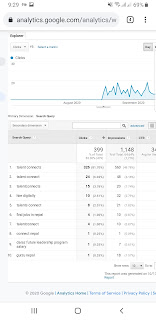Keyword research and the sources.
Outline
- Introduction of Keywords
- Keyword Research
- Sources of Keywords
- Conclusion
1. Introduction of Keywords
In layperson language, all words or phrases seem keywords. But, in digital marketing, the actual meaning of keywords is different than simple language. The keywords are those words or phrases by which a user seeks solutions to their question or query.
The user is searching for solutions to their problems online. They seek information about something or answer the questions or method of doing something special. In this course, they put a word or set of words as a query online. What word or phrase they use for search purposes called Keywords.
Keyword Research is the most fundamental influential factor in digital marketing. If your selected keywords are appropriate, then attracting the audience to your site is viable. The keywords are the means of attracting viewers to your website or blog. So, The keywords selection is the most important for content marketing.
2. Keyword Research
How the keywords choose for your content is the keys question for all. To find the keywords, you have to spend some time doing keyword research. There are some proven ways to find related keywords for your content. Your content has many words, but none of them used by the searcher to find their query has no meaning. You are not writing for yourself. You write for audiences. Your content is not going to show up on the first page directly. If your audience came to read your writings, then it has kept some meaning otherwise meaningless. How your audience finds your content online is based upon what kind of words you use in the articles. If your writings have those words that are used by audiences for their queries, then they will find you otherwise not. So, keyword research is a process to find the main words or phrases that viewers are using to fetch information for their inquiry.
- www.google.com
- www.keywordspace.com
- www.webconfs.com
- www.keywordresearch.io
- www.wordtracker.com
- www.ubersuggest.com
- www.trends.google.com
- www.answerthepublic.com
- www.seoreviewtools.com/keyword-research- tool
- www.ahrefs.com/keyword-generator
- www.keywordsheeter.com
- www.app.biq.cloud
- keyword surfer Extention
3. Sources of keywords
3.1Google's autocompleting function
The Google search engine is the most powerful tool that provides keyword ideas. Its auto-complete function helps to find keyword ideas. There are billions of search queries every day. If you type a word or some set of words on a search engine, then it automatically displays other words that online users use to find something online. For example, If we are going to find a "keyword" on the search engine. We put the word "keyword" on Google, following words like keyword generator, keyword sheeter, keyword research, keyword planner, keyword tool, keyword in c, keyword everywhere, keyword meaning, the keyword for youtube, keyword finder. The autocomplete result will vary according to users due to the user setting of the region. Nepal is set as a region here, so the result was these keywords, and your results will differ from this.
3.2 Google's people also ask option.
There is some question shown as People also ask on the bottom of the search page as we put words as a query on the search engine. Those questions also provide a basis for keyword ideas. From the above query, such as :How do you do keyword research?
How do I do free keyword research?
What is the best keyword research tool?
What is an example of a keyword?
3.3 Google Analytical/search console
If you own a website and use the Google analytics and Google search console, then it also provides a basis for keyword research. These tools automatically show the queries using by the user. These queries became the keywords and can use for web or blog content. But remember that your content has to relevant to these keywords.
3.4 Search option
If you own the website or blog and built the search function, then it also provides keyword ideas. When the user came on a website or blog and used the search function to find their preferred one by inputting some words, those words became the keywords. Hence, we get the keywords for our website or blog.
3.5 Competitor analysis or content gap analysis
Another basis for finding the keyword is competitor analysis or content gap analysis. Find the competitors who are the competitors of your business. Watch their website traffics, ranking status, and should consider what keywords they used for ranking. There are so many tools available online, even some of them are free that helps to compare your data, such as ranking, traffic, and keywords with your competitors. This competitive analysis provides insight into a gap between you and your competitors. It also provides a basis for the improvement of your website or blog. This analysis helps to find the keywords they include in their content, but you missed yet is the opportunity for you to improve.
3.6 Social media
Reddit, Facebook, Linkedin, Twitter, Quora, Mix, Medium, blogs, and many more social handles too help to find the keyword ideas. Its post and comment generate ideas about what is on trending on the forums. If a keyword idea relates to the business, then you can go with them. These ideas can use for your content creation.
4. Conclusion
Keyword research is an essential part of digital marketing. Without it, one cannot attract its audience to its content. Finding appropriate words or phrases for content is the choice of any content writer. After getting a bunch of keywords, you have to consider your selected keywords. It should have low competition words and the minimum domain authority. Keep in mind, the selection of keywords should not have high competition and domain authority. If so, it is not possible to rank your keywords. Finding words that have low competition and domain authority, there are so many online tools available such as Aherfs, Moz, Webconfs, Semrush, and many more.







Google keyword planner Pretty good post. I just stumbled upon your blog and wanted to say that I have really enjoyed reading your blog posts. Any way I'll be subscribing to your feed and I hope you post again soon. Big thanks for the useful info.
ReplyDelete